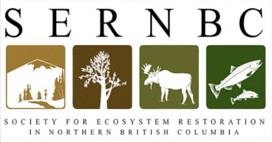Project Timeline
2020 - 2025
Funding From
CNC Research Forest Society
Project Summary
The western toad (Anaxyrus boreas) is widely distributed throughout western North America. In habitats altered by forest practices, the degredation of natural habtiat and the creation of artificial (temporary) ponds from both road construction and harvest can either benefit or hinder local populations, providing either suitable habitat facilitating growth and development, or can result in severe, mass mortality events when conditions become unfavourable.
This project noted both pond characteristics and amphibian use over a 5-year period. Thus far, findings suggest that a majority of roadside ponds studied function as amphibian breeding habitats, especially for western toads (detected in 89% of ponds studied). However, relatively high temperatures in summer result in pond desiccation (drying up) before tadpoles have time to reach maturity.
Research Team
Vanessa Uschenko – Research Assistant, CNC Research Forest, BSc, RPBio
Other contributors to this research include Melissa Mjolsness, Kerry Anderson, Carter Reed, Marie-Eve Lavoie, Natasha Lebiadowski, Sonja Hadden, Hannah Fraser, and Andrea Erwin (NRFT Faculty).
Partners

Society of Ecosystem Restoration in Northern British Columbia (SERNbc)